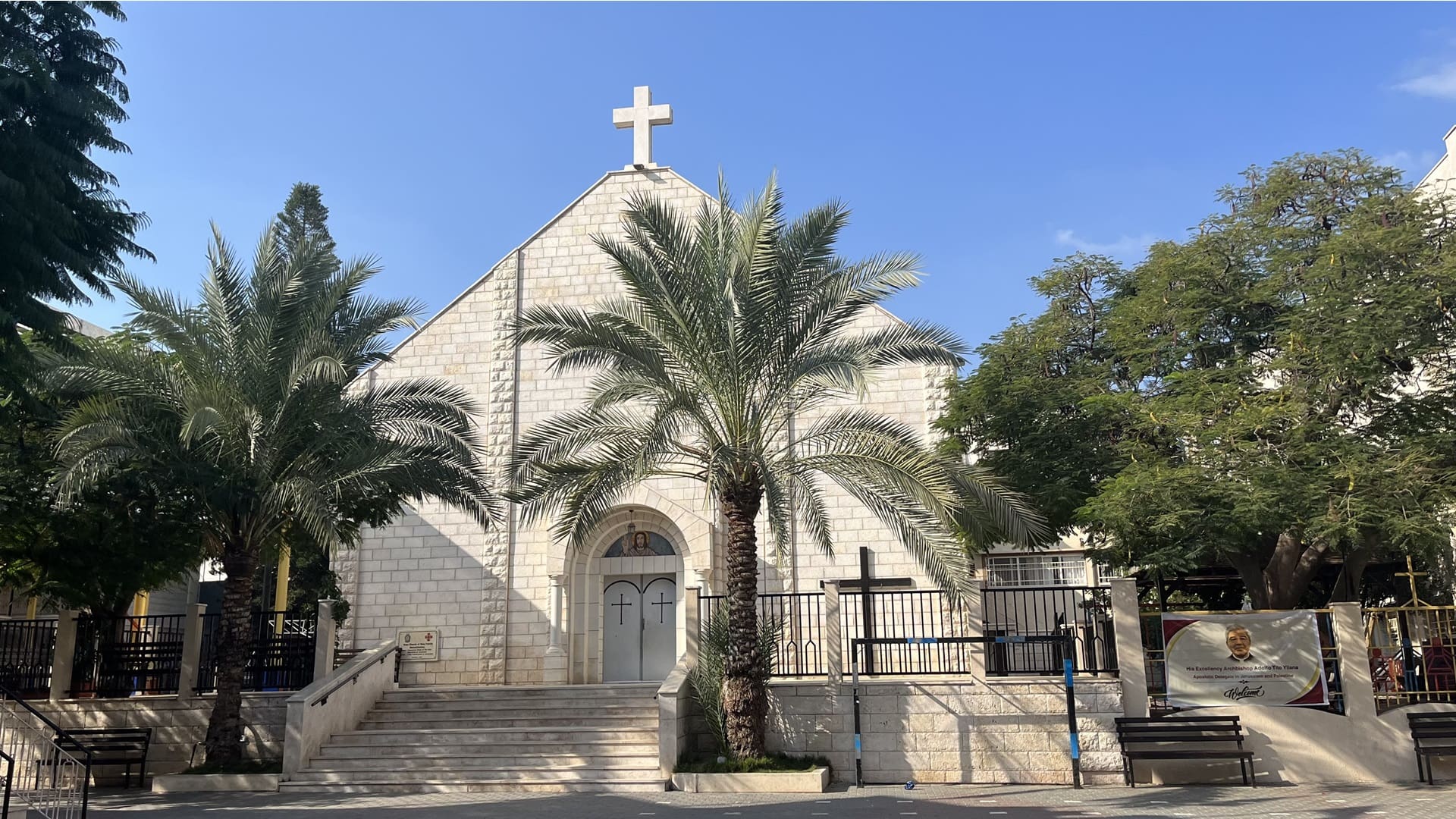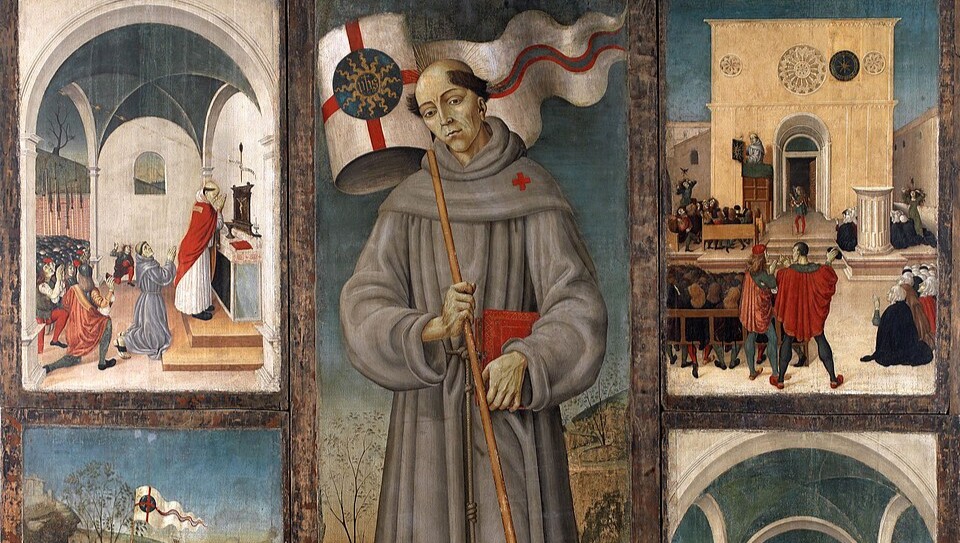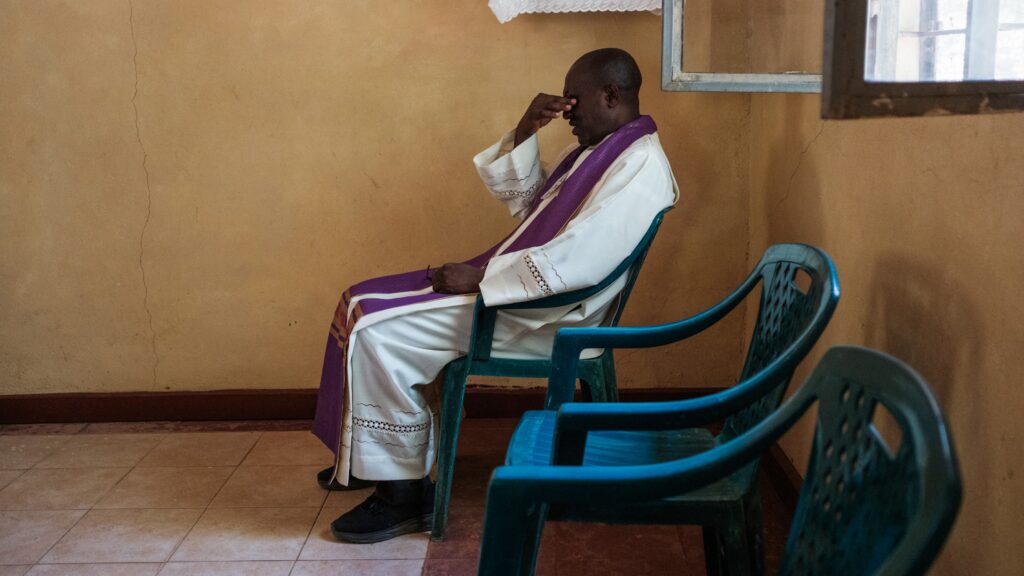The New York Times, right before Christmas, ran an article titled God Is Under the Rubble in Gaza: Bethlehem’s Subdued Christmas. It highlighted how, for the first time in the modern era, Palestinian Christian leaders in Bethlehem, the birthplace of Jesus located in the occupied West Bank, chose to forgo the usual public festivities, such as twinkling Christmas lights, the playing of music on the streets, the decorated tree in Manger Square, etc. In essence, Bethlehem was a ‘ghost town’ this year.
They cited the widespread bombing, death, and destruction in Gaza that has killed over 20,000 Palestinians as the reason for a more sober observation of Christ’s birth—70 per cent of the 20,000 casualties are women and children, according to the Gaza Health Ministry and the United Nations.
Of the casualties, a total of 21 Christians in Gaza have been killed, including two Catholic women. Nahida Anton and her daughter Samar Anton were fatally shot by the IDF as they walked to the convent of the Missionaries of Charity within the complex of the Holy Family Catholic Parish, the only Catholic church in the Gaza Strip. Samar was killed while she was trying to carry her mother to safety—the IDF also destroyed the convent, which is believed to be sheltering 300 people. According to the Latin Patriarch of Jerusalem, Cardinal Pierbattista Pizzabella, they ‘were shot in cold blood inside the premises of the parish, where there are no belligerents’.
21 Christians may seem small compared to the tens of thousands of Muslims who have been killed, injured, and displaced. However, the fact that there are less than 1,000 Christians in Gaza—a decline from 2,000 in 2007 when Hamas took control of the area—means that
such casualties threaten to eliminate their presence in the Gaza Strip for the first time in their 2000-year history.
A History of Christian Persecution in the Holy Land
The average scholar or historian would say that the plight of Palestinian Christians began as early as 1948 during the Nakba of 1948—the violent displacement and dispossession of approximately 750,000 Palestinians. While Palestinian Muslims suffered the heavy consequences, Palestinian Christians were likewise targeted in the Holy Land—as a geographic term, the description of the ‘Holy Land’ generally encompasses modern-day Israel, the Palestinian territories, Lebanon, western Jordan, and south-western Syria.
As explained by award-winning Palestinian Christian journalist Daoud Kuttab, Christ’s faithful were forced out from Lydda (what Israelis call Lod today). Many ended up taking refuge in Ramallah, walking countless kilometres on foot, while trying to avoid the onslaught of far-right Jewish militants. All things being equal,
the Christian persecution in the Holy Land, as recounted by Sacred Scripture, began with the death of Jesus Christ Himself at the hands of the Sanhedrin—an elite council of priestly and lay elders.
The Sanhedrin arrested Jesus during the Jewish festival of Passover for the crime of blasphemy, specifically because He referred to God as His Father (Matthew 26, 63-66; Mark 14, 61-64; Luke 22, 67-71). And thus, He was accused of ‘making Himself God’ (John 10, 30-33). While the Romans were the ones who materially crucified the Lord, He was brought to Pilate by the Jews because only the Roman authorities could carry out this type of humiliating capital punishment. And it was not just the Jewish body politic that demanded the crucifixion of Christ, the crowds of Jerusalem, too, when they shouted: ‘Crucify Him! Crucify Him!’ (Matthew 27, 22-23; Mark 15, 13; Luke 21, 23).
This is the reason why the first and closest followers of Christ, the Apostles, hid in the upper room, for ‘fear of the Jews’ (John 20, 19). In fact, as per the Catholic calendar on 26 December, the day after most of the Christian world celebrates the birth of Christ, the Church observes the martyrdom of St Stephen the Proto-Martyr who was stoned by the Jews for bearing witness that Jesus is the Messiah (Acts 6, 8-10, 7, 54-60).
We have been constantly reminded of the antisemitism that has grown since 7 October after the Hamas terrorists killed approximately 1,200 Jews and kidnapped over 240 people, including women and children, as hostages. That being said, Christian leaders in Israel have been saying that even prior to that ominous day, they, too, have been under attack.
Far-right Jewish adults and children spitting on Christian pilgrims carrying a cross on Via Dolorosa, the targeting of Christian symbols, especially the crosses, and harassers often calling Christians ‘pagans’ or ‘idol worshippers’ have been part of the persecution. In addition, there are discriminatory laws, such as the prohibition for Christians to legally marry Jews and the prohibition of most Palestinian Christians from entering Jerusalem except during holidays.
As professed by Palestinian Christians, the US-led West, and not just them, have ‘treated us…as the children of a lesser God’.
Christians in the Holy Land have dwindled from over 10 per cent of the population on the eve of Israel’s founding in 1948 to between two and three per cent today, according to the local Roman Catholic church — in Bethlehem, the birthplace of Christianity, as reported by The Times of Israel, only eleven thousand remain.
The decline began with high Jewish immigration and the displacement of Christians who were coerced to emigrate, and has been abetted by continued emigration and, as a result of poor economic conditions, a low birthrate among Christians who stay. Another contributing factor has been the illegal settlement activity targeting community buildings and land, as well as vandalism of church property.
For all the trials the Christians have endured—from famine during the Ottoman Empire to British bombardment during World War I and the rule of Hamas—the potential future for our Christian brethren in the Holy Land after the war is eventually over seems bleak, at least according to Palestinian political analyst Khalil Sayegh.
Silence of Those Who Can Help
Perhaps the real tragedy has been the near to absolute silence on the part of leaders in Christian-majority countries, such as US President Joe Biden. For someone who claims to be a devout Catholic—he is not because of his public dissent from Church teaching on moral issues, such as abortion, marriage, etc.—
President Biden has said and done practically nothing to protect fellow Catholics in Gaza.
It reflects what Bishop Justin Kientega of Ouahigouya, Burkina Faso had said some time ago when 14 people were massacred in a Protestant church in Hantoukoura: 'There is an ongoing persecution of Christians…. but nobody is listening to us. Evidently, the West is more concerned with protecting its own interests.'
In 2019, Hungarian Prime Minister Viktor Orbán, on the occasion of an international conference on Christian persecution, stated:
'Europe is quiet. A mysterious force shuts the mouths of European politicians and cripples their arms. Christians are not allowed to be mentioned on their own, only together with other groups that are being persecuted for their faiths.'
Yet even the Hungarian government, in its unapologetic defence of Israel in its war against Hamas—and Hamas should and must be eliminated—has been reticent to point out the disappearing presence of Christians in the Holy Land.
A Silver Lining in the Cloud?
Days after the faithful of St Porphyrius’ Orthodox Church in Gaza gathered to bury 18 people, including nine children, as a result of an Israeli airstrike on 19 October, they came together again to witness the baptism of nine children. While the atmosphere was far from joyous, Father Silas Habib baptized the youngest members of his congregation as explosions resounded in the distance. A small hope for the future?
Protecting Holy Land Christians—an ecumenical campaign assembled by the Patriarch of Jerusalem—says that, at the current rate of decline, 'within a generation, there will be no Christian communities left in the Holy Land'. It also states that the numbers demonstrate the extent of the problem:
Christians comprise less than one per cent of Jerusalem’s population, down from 11 per cent in the middle of the 20th century.
Let us pray that, as we begin the New Year of 2024, the Christmas message the angel of the Lord announced to the shepherds when Christ was born, '…on Earth, peace to men of good will,' (Luke 2, 14) is embraced by those who are in power to make the necessary changes for the better.
Related articles:








